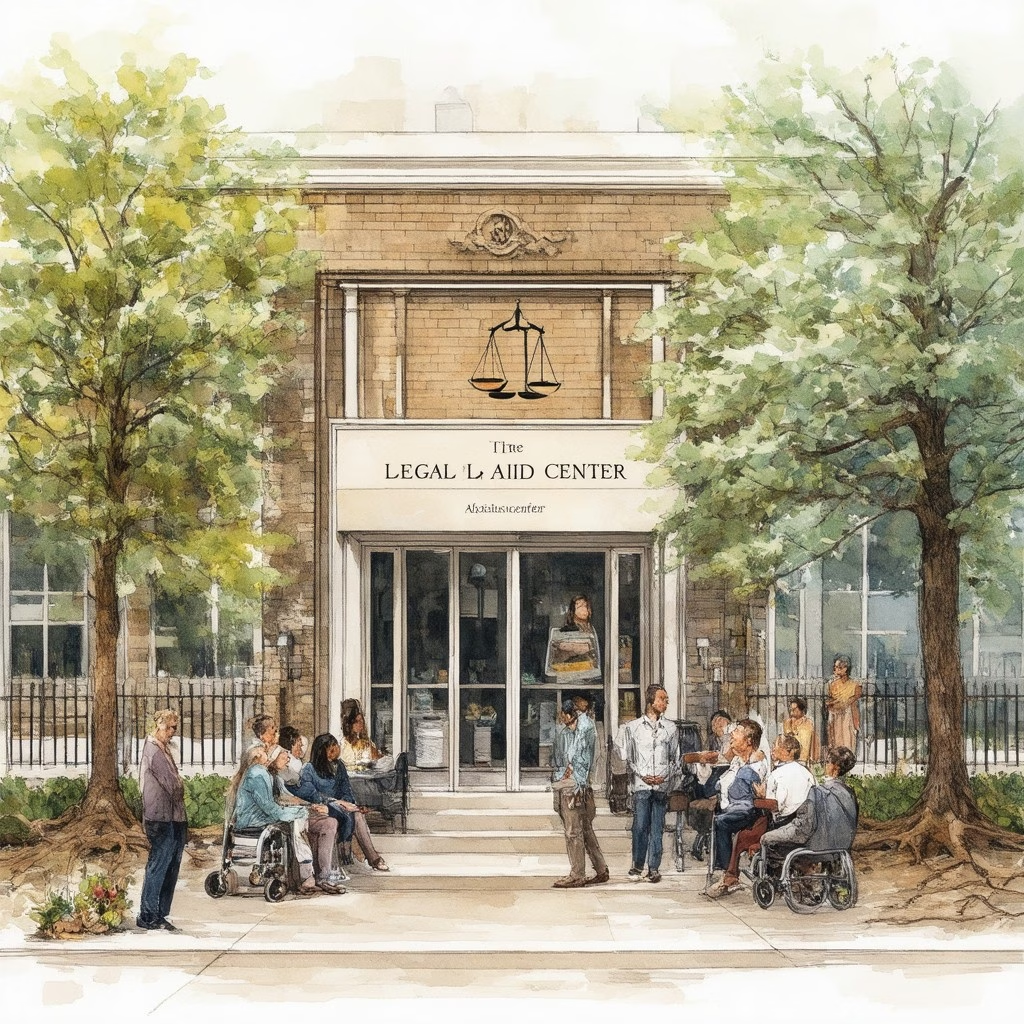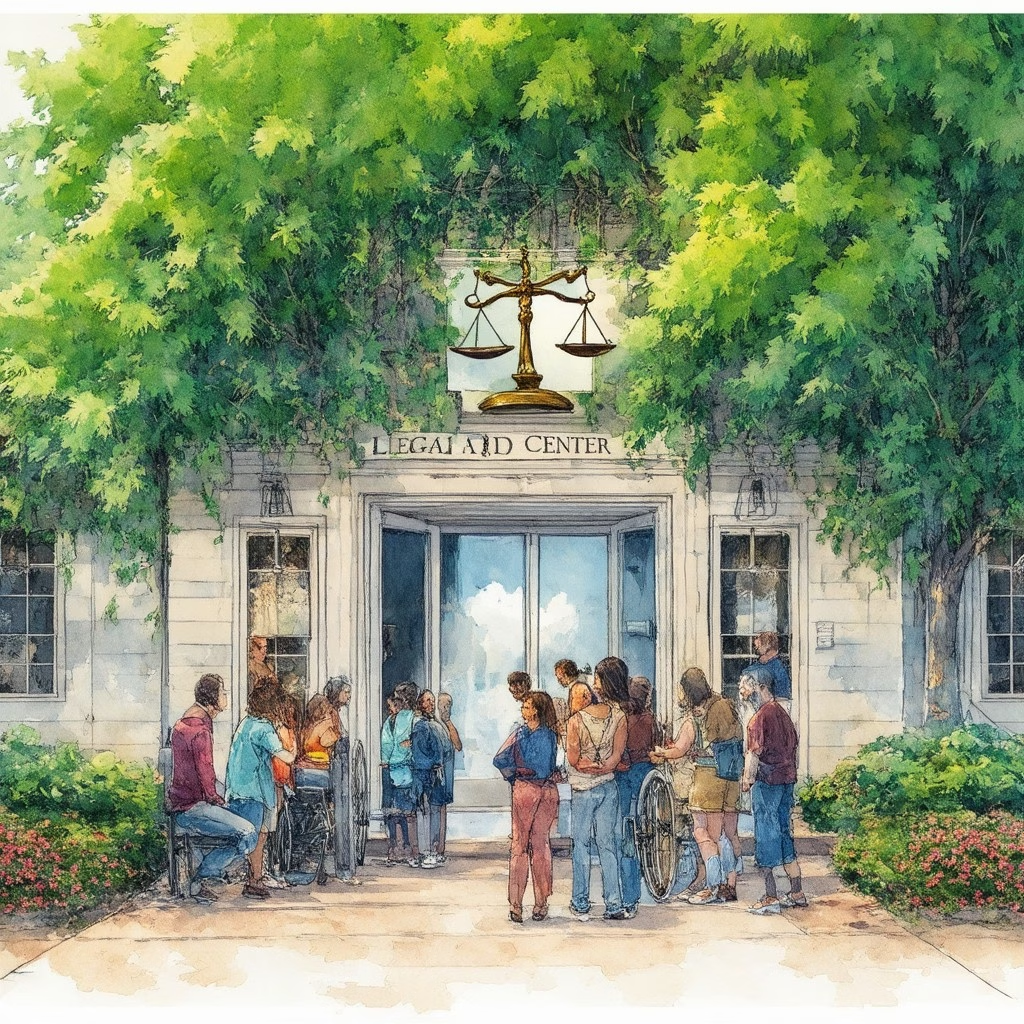Key Takeaways
- Legal aid centres provide free legal services for individuals who meet specific income eligibility criteria, ensuring access to justice.
- Understanding the costs of legal aid is crucial; many services are offered at little to no cost based on sliding income scales.
- Common legal issues addressed by legal aid include housing, child custody, and public benefits, making it a vital resource for low-income individuals.
- In California, various organizations like California Rural Legal Assistance offer tailored legal support to those in need.
- Accessing local legal aid services can provide personalized assistance and community knowledge, enhancing your legal support experience.
In today’s complex legal landscape, understanding the resources available to you is crucial, especially when it comes to navigating the intricacies of legal aid. This article delves into the essential insights on legal aid centres, shedding light on the costs associated with hiring a legal aid lawyer, the income eligibility criteria for accessing these vital services, and the specific legal issues that legal aid can help address. Whether you’re seeking free legal services in California or trying to determine how much you should pay a lawyer, we will guide you through the various aspects of legal aid legal services. Additionally, we will explore the offerings of the Legal Aid Society and provide tips on how to find a legal aid centre near you. By the end of this article, you will have a comprehensive understanding of how legal aid can support your legal needs and empower you to make informed decisions.
Understanding the Costs of Legal Aid Services
When considering legal aid services, understanding the associated costs is crucial for individuals seeking assistance. Legal aid lawyers typically provide their services at no cost to individuals who meet specific income eligibility criteria. These not-for-profit agencies aim to assist those who cannot afford private legal representation. While many legal aid offices primarily serve individuals with very low incomes, some may have more flexible income guidelines to accommodate a broader range of clients.
Overview of Legal Aid Centre Fees
Legal aid centres generally operate under a model that prioritizes accessibility over profit. Most legal aid services are provided free of charge, ensuring that individuals facing financial hardships can receive the legal help they need. In addition to free legal representation, many legal aid offices offer self-help resources, including legal information and guidance on navigating the legal system. These resources can be invaluable for individuals seeking to understand their rights and options without incurring legal fees.
Factors Influencing Legal Aid Costs
While many legal aid services are free, several factors can influence the availability and extent of legal aid help. For those who do not qualify for legal aid but still require affordable legal assistance, some attorneys may offer sliding scale fees based on income or payment plans. It’s essential to research local legal aid resources, as availability and services can vary by state and region. For more information on legal aid services, you can visit Legal Services Corporation, which is a significant source of funding for legal aid programs and can provide further insights into available resources.

Understanding the Costs of Legal Aid Services
When considering the use of a legal aid centre, understanding the associated costs is crucial. Legal aid services are designed to provide affordable legal assistance to those who cannot afford private representation. While many services are offered at little to no cost, there are instances where fees may apply. This section will explore the fees typically associated with legal aid centres and the factors that influence these costs.
Overview of Legal Aid Centre Fees
Legal aid centres often operate on a sliding scale based on income, meaning that the fees for services can vary significantly. In many cases, individuals may qualify for free legal services if their income falls below a certain threshold. For example, in Alberta, individuals with a gross annual income of up to $30,000 may be eligible for legal representation in various cases, including criminal, family, and immigration matters. It’s essential to note that these income limits can vary based on family size and specific circumstances.
Legal aid services aim to ensure access to justice for low-income individuals, and as such, many centres strive to minimize costs wherever possible. However, some legal aid centres may charge nominal fees for specific services, such as document preparation or consultation sessions. For the most accurate and updated information regarding eligibility criteria and potential fees, it is advisable to consult the official Legal Services Corporation website or contact local legal aid offices directly.
Factors Influencing Legal Aid Costs
Several factors can influence the costs associated with legal aid services. These include:
- Income Level: As mentioned, income thresholds play a significant role in determining eligibility for free or reduced-cost legal aid.
- Type of Legal Issue: The complexity of the legal matter can affect costs. For instance, family law cases may have different fee structures compared to criminal defense.
- Family Size: Larger families may have higher income thresholds, allowing them to qualify for legal aid services even if their combined income exceeds the standard limits.
- Location: Legal aid centres may have varying fee structures based on regional funding and resources available.
Understanding these factors can help individuals better navigate the legal aid system and determine what assistance they may qualify for. For more information on accessing legal aid services, visit Finding Legal Aid Near Me.
Services Offered by Legal Aid Centres
Legal aid centres play a crucial role in providing access to justice for individuals who may not afford legal representation. These centres offer a variety of legal aid services tailored to meet the needs of low-income individuals and families. Understanding the specific services available can help you navigate your legal challenges more effectively.
Common Legal Issues Addressed by Legal Aid
Legal aid centres typically assist with a range of common legal issues, including:
- Housing: Legal aid centres help clients secure and maintain safe, affordable housing. They provide representation in eviction cases and assist with tenant rights issues.
- Public Benefits: They guide clients through the complexities of government benefits, including unemployment insurance and food assistance programs.
- Child Custody: Legal aid centres offer representation and advice for parents involved in custody disputes, ensuring the best interests of the child are prioritized.
- Consumer Law: Assistance with consumer issues such as bankruptcy, debt collection, and foreclosure defense is also available.
- Domestic Violence: Comprehensive support is provided to victims of domestic violence, including legal representation and safety planning.
Specific Services Provided by Maryland Legal Aid
Maryland Legal Aid provides a wide range of essential services to support individuals facing legal challenges. Here’s a comprehensive overview of the areas they assist with:
- Housing: They help clients secure and maintain safe, affordable housing, providing legal representation in eviction cases.
- Public Benefits: Guidance in navigating government benefits, including unemployment insurance and food assistance programs.
- Child Custody: Legal representation and advice for parents involved in custody disputes.
- Consumer Law: Legal advice and representation for issues like bankruptcy and debt collection.
- Criminal Record Expungements: Assistance in expunging criminal records to remove barriers to housing and employment.
- Domestic Violence: Support for victims of domestic violence, including legal representation and access to resources.
- Special Projects: Targeted programs for vulnerable populations, addressing specific legal needs.
- Other Areas: Family law matters, guardianships, and support related to housing and mental health.
For more information on the services provided by Maryland Legal Aid, you can visit their official website or consult resources like the American Bar Association, which offers guidance on accessing legal aid services.
Accessing Free Legal Services in California
Obtaining free or low-cost legal assistance in California is essential for many individuals facing legal challenges. Fortunately, there are several avenues available to access legal aid services tailored to your needs. Below are key options to consider:
- Legal Aid Services: Various legal aid organizations provide free or low-cost legal help for non-criminal cases. Eligibility typically depends on your income level and the nature of your legal issue. Key organizations include:
- California Rural Legal Assistance (CRLA): Focuses on serving low-income individuals in rural areas.
- Legal Aid Foundation of Los Angeles (LAFLA): Offers services to residents of Los Angeles County.
- Bay Area Legal Aid: Provides assistance in the Bay Area for various legal matters.
- LawHelpCalifornia.org: This resource helps you locate legal aid offices in your area. You can search by your specific legal issue, such as housing, family law, or immigration, to find tailored assistance.
- Pro Bono Services: Many law firms and attorneys offer pro bono (free) services to individuals who cannot afford legal representation. Check with local bar associations, which often have pro bono programs or can connect you with attorneys willing to help.
- Self-Help Centers: California courts have self-help centers that provide resources and guidance for individuals representing themselves in legal matters. These centers can help you understand court procedures and fill out necessary forms.
- Online Resources: Websites like Nolo.com and FindLaw.com offer free legal information and resources that can help you navigate your legal issues without needing a lawyer.
- Government Programs: Some government agencies provide legal assistance or referrals. For example, the California Department of Consumer Affairs can direct you to resources for specific legal issues.
For more detailed information on legal aid services and eligibility requirements, visit the California Courts Self-Help Guide at www.courts.ca.gov/selfhelp.
Steps to Obtain Free Legal Aid
To successfully obtain free legal aid in California, follow these steps:
- Assess Your Legal Needs: Identify the specific legal issue you are facing, such as family law, housing disputes, or immigration matters.
- Check Eligibility: Review the income guidelines set by various legal aid organizations to determine if you qualify for assistance.
- Contact Legal Aid Organizations: Reach out to local legal aid centres or organizations that specialize in your area of need. They can provide guidance and support tailored to your situation.
- Utilize Online Resources: Explore websites like Gov Guider for comprehensive guides on accessing free legal services.
- Visit Self-Help Centers: If you prefer to represent yourself, visit a self-help center for assistance in understanding court procedures and completing necessary forms.
By following these steps, you can effectively navigate the process of obtaining legal aid and ensure that you receive the necessary support for your legal challenges.

Legal Aid Society: What They Offer
The legal aid centre plays a crucial role in providing essential legal aid services to individuals who may not have the financial means to hire a private attorney. Understanding what the Legal Aid Society offers can empower you to access the support you need for various legal issues.
Overview of the Legal Aid Society’s Services
The Legal Aid Society provides a wide range of legal aid legal services aimed at addressing the needs of low-income individuals and families. These services typically include:
- Family Law: Assistance with divorce, child custody, and domestic violence cases.
- Housing Issues: Help with eviction defense, landlord-tenant disputes, and housing discrimination.
- Public Benefits: Guidance on accessing government benefits such as food stamps, Medicaid, and unemployment insurance.
- Immigration Services: Support for individuals navigating immigration processes, including asylum applications and deportation defense.
- Consumer Protection: Legal advice on debt collection, bankruptcy, and consumer fraud.
By offering these services, the Legal Aid Society ensures that vulnerable populations receive the necessary support to navigate complex legal systems. For more information on their offerings, you can visit the Legal Services Corporation.
How the Legal Aid Society Supports Communities
The legal aid centre not only provides direct legal assistance but also engages in community outreach and education. This includes:
- Workshops and Clinics: Hosting events to educate the public about their legal rights and available resources.
- Collaboration with Local Organizations: Partnering with community groups to identify and address legal needs within the community.
- Pro Bono Programs: Encouraging local attorneys to volunteer their time and expertise to assist those in need.
Through these initiatives, the Legal Aid Society fosters a more informed and empowered community, ensuring that individuals know where to seek legal aid help when faced with legal challenges. If you’re looking for legal aid near me, consider reaching out to your local legal aid centre for assistance.
Legal Aid Society: What They Offer
The Legal Aid Society plays a crucial role in providing essential legal support to individuals who cannot afford private legal representation. Their services are designed to address a wide range of legal issues, ensuring that everyone has access to justice. This section will explore the various services offered by the Legal Aid Society and how they contribute to community support.
Overview of the Legal Aid Society’s Services
The Legal Aid Society offers a variety of legal aid services tailored to meet the needs of low-income individuals and families. These services include:
- Family Law Assistance: Support for issues such as divorce, child custody, and domestic violence.
- Housing and Eviction Defense: Help with tenant rights, eviction proceedings, and housing discrimination.
- Public Benefits: Guidance on accessing government benefits like food assistance, healthcare, and unemployment.
- Immigration Services: Legal support for immigrants facing deportation or seeking citizenship.
- Consumer Protection: Assistance with debt collection, bankruptcy, and unfair business practices.
By offering these services, the Legal Aid Society ensures that vulnerable populations receive the legal help they need to navigate complex legal systems.
How the Legal Aid Society Supports Communities
The Legal Aid Society not only provides direct legal assistance but also engages in community outreach and education. They conduct workshops and informational sessions to empower individuals with knowledge about their rights and available resources. This proactive approach helps to:
- Increase Awareness: Informing communities about legal aid options and eligibility requirements.
- Foster Collaboration: Partnering with local organizations to enhance service delivery and reach more individuals in need.
- Advocate for Policy Change: Working towards systemic reforms that improve access to justice for all.
Through these efforts, the Legal Aid Society strengthens community ties and promotes a more equitable legal landscape. For more information on how to access these services, visit the Legal Services Corporation.
Finding Legal Aid Near Me
Locating a legal aid centre in your area can be crucial for accessing affordable legal support. Many individuals seeking legal aid often wonder how to find these essential resources. Here are some effective tips to help you locate legal aid services nearby.
Tips for Locating Legal Aid Centres in Your Area
- Online Searches: Use search engines to find “legal aid near me” or “legal aid centre in [your city].” This will yield local results tailored to your location.
- State Bar Association: Visit your state’s bar association website, which often has a directory of legal aid centres and resources available for residents.
- Community Resources: Check with local community centers, libraries, or non-profit organizations, as they frequently have information on legal aid services.
- Referrals: Ask friends, family, or colleagues if they know of any reputable legal aid services they can recommend.
Benefits of Using Local Legal Aid Services
Utilizing local legal aid services offers several advantages:
- Personalized Assistance: Local legal aid centres understand the specific laws and regulations in your area, providing tailored support.
- Accessibility: Being close to home makes it easier to attend appointments and access resources.
- Community Knowledge: Local organizations often have connections with other community services, enhancing the support you receive.
- Cost-Effective Solutions: Many local legal aid centres offer free or low-cost services, making legal assistance more accessible to those in need.
For more information on finding legal aid services, you can explore resources like the Legal Services Corporation or visit Gov Guider’s guide on locating legal aid near you.




